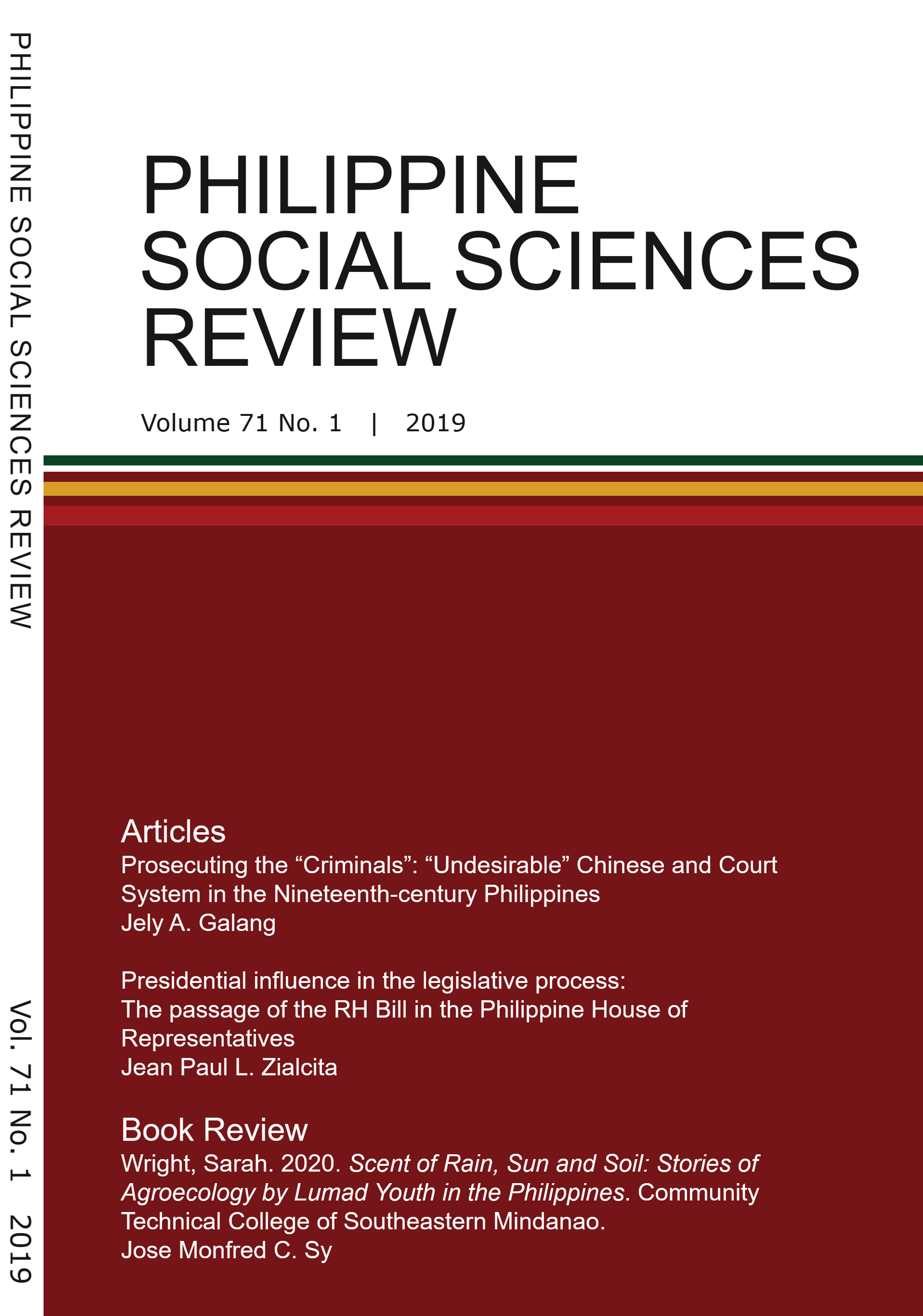Prosecuting the “Criminals”: “Undesirable” Chinese and Court System in the Nineteenth-century Philippines
Abstract
In the nineteenth-century Philippines, numerous “undesirable” Chinese violated certain policies commonly related to registration, taxation and migration. The Spanish colonial government regarded this particular segment of the Chinese population—vagrants, unemployed, idlers, drunkards, pickpockets, beggars, undocumented, and the “suspicious”—as a serious threat to the colony’s political security and financial stability. As such, they were invariably arrested, prosecuted and punished through the state’s judicial apparatus, of which the court system was an important component. Using unexplored archival materials, this paper examines how “undesirable” Chinese were tried in regular and special courts like the Tribunal de Sangleyes in the 1800s. It interrogates the actors, institutions and processes involved in prosecuting these individuals. It argues that while these “criminals” were subjected to bureaucratic judicial procedures, they also employed certain subtle strategies that challenged the state’s administrative and financial capabilities.
Published
2021-11-15
How to Cite
GALANG, Jely A..
Prosecuting the “Criminals”: “Undesirable” Chinese and Court System in the Nineteenth-century Philippines.
Philippine Social Sciences Review, [S.l.], nov. 2021.
ISSN 2672-3158.
Available at: <https://journals.upd.edu.ph/index.php/pssr/article/view/8404>. Date accessed: 30 sep. 2025.
Section
Articles


